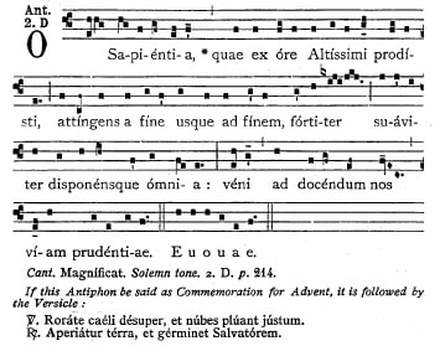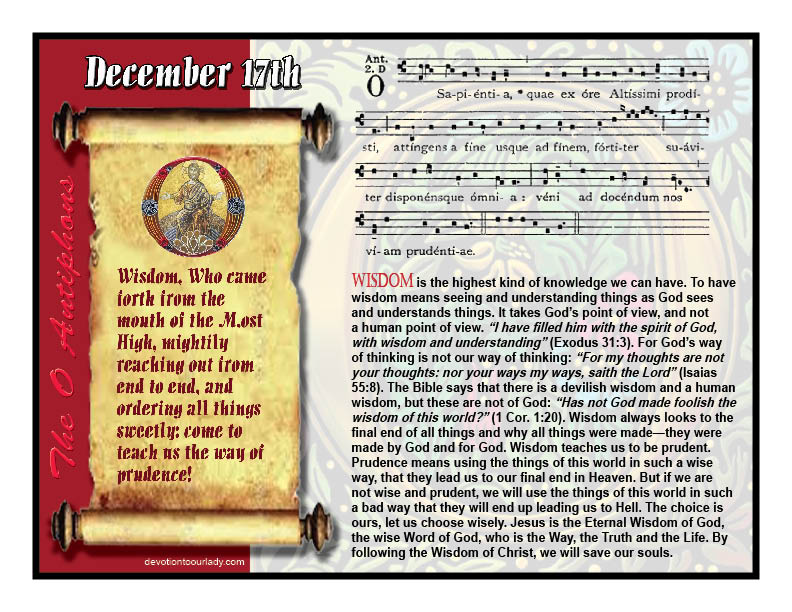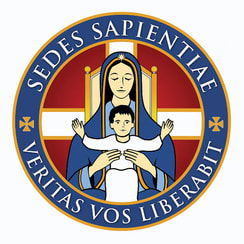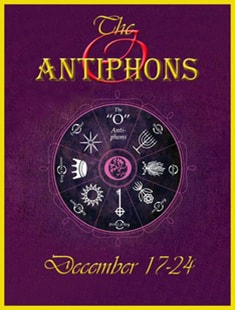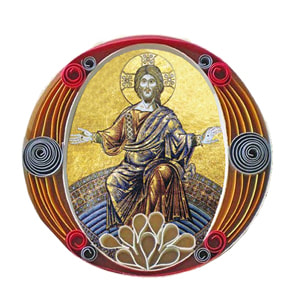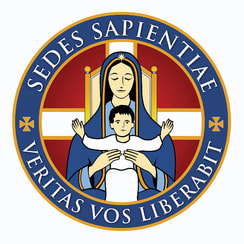| Devotion to Our Lady |
|
- Homepage
-
Daily Thoughts
- 2023 October Daily Thoughts
- Daily Thoughts Lent 2020
- Daily Thoughts for Advent 2019
- Daily Thoughts for October 2019
- Daily Thoughts for September 2019
- Daily Thoughts for August 2019
- Daily Thoughts for July
- Daily Thoughts for June
- Daily Thoughts for Easter 2019
- Daily Thoughts for Lent 2019
- Daily Thoughts for Christmas
- Daily Thoughts Easter 2022
- Sacred Heart
- Holy Ghost
-
Spiritual Life
- Holy Mass Explained
- First Friday Devotions
- First Saturday Devotions
- The Mercy of God
- Vocations
- The Path Everyone Must Walk >
- Gift of Failure
- Halloween or Hell-O-Ween?
- Ignatian Spiritual Exercises >
- Meditation is Soul-Saving
- Spiritual Communion
- Miraculous Medal
- Enrollment in Miraculous Medal
- St. Benedict Medal
- Holy Water
- Advice on Prayer
- Your Daily Mary
-
Prayers
- September Devotions
- Seven Sorrows of Our Lady
-
Novenas
>
- NV-Help of Christians
- NV-Nativity of Our Lady
- NV-Seven Sorrows
- NV- Sorrowful Heart
- NV-Pope St Pius X
- NV-La Salette
- NV-St Michael Archangel
- NV-Immaculate Heart
- NV-Assumption
- NV-Novena for Fathers
- NV-Novena for Your Mother
- NV-St Raphael Archangel
- NV-Souls in Purgatory
- NV-All Saints Day
- NV-Christ the King
- NV-Divine Motherhood
- NV-Guardian Angels
- NV-Rosary
- NV-Mirac Med
- NV- Imm Conc
- NV - Guadalupe
- NV - Nativity of Jesus
- NV-Epiphany
- NV-OL Good Success
- NV-Lourdes
- NV-St Patrick
- NV-St Joseph
- NV-Annunciation
- NV-St Louis de Montfort
- NV-OL Good Counsel
- NV-Last Supper
- NV-Passion
- NV-Pentecost
- NV-Ascension
- NV-Sacred Heart
- NV-Sacred Heart & Perpetual Help
- NV-Corpus Christi
- NV-OL of Perpetual Help
- NV-Queenship BVM
- NV-OL of Mount Carmel
- NV-St Mary Magdalen
- NV- Im Hrt
- August Devotions to IHM
- Immaculate Heart of Mary
- Litany of Dependence
- Prayers to St Mary Magdalen
- Prayers in Times of Sickness Disease & Danger
- Holy Souls in Purgatory
- Meditations on the Litany of Our Lady
- Special Feast Days
- Prayers to Mary (Mon-Sun)
- Litanies to Our Lady >
- Various & Special Needs
- Our Lady of the Rosary
- Our Lady of Mt. Carmel
- Our Lady of Perpetual Help
- Our Lady of Guadalupe
- Other titles of Our Lady
-
Rosary
- Downloads
- Consecration
- Easter Season
-
Holy Week
- Last Seven Words of Jesus >
- Characters of Passion >
- The Last Days of Christ
- Before Palm Sunday
- Palm Sunday
- Monday in Holy Week
- Tuesday in Holy Week
- Wednesday in Holy Week
- Holy Thursday (Last Supper)
- Holy Thursday (Agony & Arrest)
- Night Vigil with Christ
- Good Friday (Pilate & Herod)
- Good Friday (Way of Cross & Crucifixion)
- Saturday in Holy Week
-
Lent
- Ideas for Lent
- Daily Lenten Planner
- Daily Lenten Liturgy
- From Cold to Hot
- Lent with Aquinas
- Lent with Dom Gueranger
- Virtues for Lent
- History of Penance
- How Expensive is Sin?
- Confession of Sins
- Letter to Friends of the Cross
- Sermons for Lent
- Stations of the Cross >
- Lenten Prayers
- 7 Penitential Psalms
- Lenten Psalms SUN
- Lenten Psalms MON
- Lenten Psalms TUE
- Lenten Psalms WED
- Lenten Psalms THU
- Lenten Psalms FRI
- Lenten Psalms SAT
- Lenten Laughs
- Septuagesima
-
Christmas
- Epiphany Explained
- Suggestions for Christmas
- Food For Thought
- Christmas with Aquinas
- Christmas with Dom Gueranger
- Christmas Prayers
- Candles & Candlemas
- Christmas Sermons
- Christmas Prayers SUN
- Christmas Prayers MON
- Christmas Prayers TUE
- Christmas Prayers WED
- Christmas Prayers THU
- Christmas Prayers FRI
- Christmas Prayers SAT
- Twelve Days of Christmas >
-
Advent Journey
- Purgatory
- Christ the King
- Legion of Mary
- Scapular
-
Saints
-
Martyrs for the Faith
>
- Your Daily Martyr >
- All 365 Days of Martyrs
- Cristeros
- St Valentine & Valentine's Day
- Martyrs--Thomas Becket
- Martyrs--John the Apostle
- Holy Machabees
- Age of Martyrdom
- Carmelites of Compiegne
- Martyrs--Peter & Paul
- Martyrs--John the Baptist
- Martyrs--Andrew
- Martyrs--James the Great
- Martyrs--North American
- Martyrs--Seven Holy Sleepers
- Martyrs--Afra
- School of Martyrdom
- Martyrs--Christina
- Desert Saints >
- Saints for Sinners >
- Saints of Mary >
- History of All Saints Day
-
Martyrs for the Faith
>
- Precious Blood
- Synod 2023
-
Catechism
- Catechism Lesson 1
- Catechism Lesson 2
- Catechism Lesson 3
- Catechism Lesson 4
- Catechism Lesson 5
- Catechism Lesson 6
- Catechism Lesson 7
- Catechism Lesson 8
- Catechism Lesson 9
- Catechism Lesson 10
- Catechism Lesson 11
- Catechism Lesson 12
- Catechism Lesson 13
- Catechism Lesson 14
- Catechism Lesson 15
- Catechism Lesson 16
- Catechism Lesson 17
- Catechism Lesson 18
- Catechism Lesson 19
- Catechism Lesson 20
- Catechism Lesson 21
- Catechism Lesson 22
- Bible Study
-
Calendar
- Miracles
- Apparitions
- Shrines
- Prophecies
- Angels Homepage
- Hell
-
Church Crisis
- Conspiracy Theories
- Amazon Synod 2019 >
- Liberalism & Modernism
- Modernism--Encyclical Pascendi
- Modernism & Children
- Modernism--Documents
- The Francis Pages
- Church Enemies on Francis
- Francis Quotes
- Amoris Laetitia Critique
- Danger of Ignorance (Pius X)
- Restore all In Christ (Pius X)
- Catholic Action (Pius X)
- Another TITANIC Disaster?
- The "Errors of Russia"
- CRISIS PRAYERS
- Election Novena 2024
- The Anger Room
- War Zone
- Life of Mary
- Spiritual Gym
- Stupidity
- Coronavirus and Catholicism
- History & Facts
- Books
- Catholic Family
- Children
- Daily Quiz
-
Novena Church & Pope
- Day 01 Church-Pope Novena
- Day 02 Church-Pope Novena
- Day 03 Church-Pope Novena
- Day 04 Church-Pope Novena
- Day 05 Church-Pope Novena
- Day 06 Church-Pope Novena
- Day 07 Church-Pope Novena
- Day 08 Church-Pope Novena
- Day 09 Church-Pope Novena
- Day 10 Church-Pope Novena
- Day 11 Church-Pope Novena
- Day 12 Church-Pope Novena
- Day 13 Church-Pope Novena
- Day 14 Church-Pope Novena
- Day 15 Church-Pope Novena
- Day 16 Church-Pope Novena
- Day 17 Church-Pope Novena
- Day 18 Church-Pope Novena
- Day 19 Church-Pope Novena
- Day 20 Church-Pope Novena
- Day 21 Church-Pope Novena
- Day 22 Church-Pope Novena
- Day 23 Church-Pope Novena
- Day 24 Church-Pope Novena
- Day 25 Church-Pope Novena
- Day 26 Church-Pope Novena
- Day 27 Church-Pope Novena
- Day 28 Church-Pope Novena
- Day 29 Church-Pope Novena
- Day 30 Church-Pope Novena
- Day 31 Church-Pope Novena
- Day 32 Church-Pope Novena
- Day 33 Church-Pope Novena
- Day 34 Church-Pope Novena
- Day 35 Church-Pope Novena
- Day 36 Church-Pope Novena
- Day 37 Church-Pope Novena
- Day 38 Church-Pope Novena
- Day 39 Church-Pope Novena
- Day 40 Church-Pope Novena
- Day 41 Church-Pope Novena
- Day 42 Church-Pope Novena
- Day 43 Church-Pope Novena
- Day 44 Church-Pope Novena
- Day 45 Church-Pope Novena
- Day 46 Church-Pope Novena
- Day 47 Church-Pope Novena
- Day 48 Church-Pope Novena
- Day 49 Church-Pope Novena
- Day 50 Church-Pope Novena
- Day 51 Church-Pope Novena
- Day 52 Church-Pope Novena
- Day 53 Church-Pope Novena
- Day 54 Church-Pope Novena
- Penance Novena
- Daily WeAtheR Forecast
CLICK ON THE LINK YOU WISH TO VIEW
| THE STORY BEHIND THE 'O' ANTIPHONS |
| O SAPIENTIA (for December 17) | O ADONAI (for December 18) | O RADIX JESSE (for December 19) | O CLAVIS DAVID (for December 20) |
| O ORIENS (for December 21) | O REX GENTIUM (for December 22) | O EMMANUEL (for December 23) |
| THE STORY BEHIND THE 'O' ANTIPHONS |
| O SAPIENTIA (for December 17) | O ADONAI (for December 18) | O RADIX JESSE (for December 19) | O CLAVIS DAVID (for December 20) |
| O ORIENS (for December 21) | O REX GENTIUM (for December 22) | O EMMANUEL (for December 23) |
Antiphon No. 1 for December 17th
TEXT OF THE ANTIPHON AND THE MAGNIFICAT IN LATIN AND ENGLISH
First pray the Antiphon; then the Magnificat ; then repeat the Antiphon
First pray the Antiphon; then the Magnificat ; then repeat the Antiphon
|
LATIN VERSION
ANTIPHON: O Sapientia, quae ex ore Altissimi prodidisti, attingens a fine usque ad finem, fortiter suaviter disponensque omnia: veni ad docendum nos viam prudentiae.
THE MAGNIFICAT: Magníficat ánima mea Dóminum. Et exultávit spíritus meus: in Deo salutári meo. Quia respéxit humilitátem ancíllae suae: Ecce enim ex hoc beátam me dicent omnes generatiónes. Quia fécit mihi mágna qui pótens est: et sánctum nómen eius. Et misericórdia eius in progénies et progénies timéntibus eum. Fécit poténtiam in bráchio suo: dispérsit supérbos mente cordis sui. Depósuit poténtes de sede: et exaltávit húmiles. Esuriéntes implévit bonis: et dívites dimísit inánes. Suscépit Ísrael púerum suum: recordátus misericórdiae suae. Sicut locútus est ad patres nostros: Ábraham, et sémini eius in saecula. Glória Patri, et Fílio, et Spirítui Sancto, Sicut erat in princípio, et nunc, et semper, et in sæcula sæculórum. Amen. ANTIPHON: O Sapientia, quae ex ore Altissimi prodidisti, attingens a fine usque ad finem, fortiter suaviter disponensque omnia: veni ad docendum nos viam prudentiae. V. Domine, exaudi orationem meam. R. Et clamor meus ad te veniat. OREMUS: Aurem tuam, quaesumus, Domine, precibus nostris accommoda: et mentis nostrae tenebras gratia tuae visitationis illustra. Qui vivis et regnas cum Deo Patre, in unitáte Spíritus Sancti, Deus, per ómnia sǽcula sæculórum. R. Amen. |
ENGLISH VERSION
ANTIPHON: O Wisdom, who came from the mouth of the Most High, reaching from end to end and ordering all things mightily and sweetly: come, and teach us the way of prudence.
THE MAGNIFICAT: My soul doth magnify the Lord. And my spirit hath rejoiced in God my Savior. Because He hath regarded the humility of His handmaid: For behold from henceforth all generations shall call me blessed. Because He that is mighty hath done great things to me; and holy is His name. And His mercy is from generation unto generations, to them that fear Him. He hath shown might in His arm: He hath scattered the proud in the conceit of their heart. He hath put down the mighty from their seat, and hath exalted the humble. He hath filled the hungry with good things; and the rich He hath sent empty away. He hath received Israel His servant, being mindful of His mercy: As He spoke to our fathers, to Abraham and to His seed for ever. Glory be the Father, and to the Son, and to the Holy Ghost, As it was in the beginning, is now, and ever shall be, forever and ever, Amen. ANTIPHON: O Wisdom, who came from the mouth of the Most High, reaching from end to end and ordering all things mightily and sweetly: come, and teach us the way of prudence. V. O Lord hear my prayer. R. And let my cry come unto Thee. LET US PRAY: O Lord, we beseech thee, mercifully incline Thine ears unto our prayers, and lighten the darkness of our minds by the grace of Thy heavenly visitation. Who livest and reignest with God the Father in the unity of the Holy Spirit, one God, world without end. R. Amen |
DOWNLOAD OUR 1ST “O” ANTIPHON POSTER ~ O SAPIENTIA
|
Click on the PDF file link below and download a Letter Size (8.5 x 11 inch) poster on today's O Antiphon: O Sapientia Each day's Antiphon will have its own poster. The Gregorian Chant notation is at the top of the page, followed by few brief meditative thoughts upon the relevance of the Antiphon for our days. A wonderful keepsake that you will use year after year. Our Christmas gift to you!
| |||||||
AN EXPLANATION AND A MEDITATION
|
The opening Antiphon sings of two essential virtues: WISDOM and PRUDENCE. Both of these virtues can be natural or supernatural. Natural wisdom and prudence can be acquired by our efforts, but supernatural wisdom and supernatural prudence are infused by God into the soul. Wisdom, in its perfection, is the deepest and most valuable knowledge the mind can possess and it centers in the supreme truth; the truly wise man contemplates ultimates, and guides his life by that knowledge. Among the intellectual virtues, wisdom is the greatest. Wisdom exercises judgment over the other intellectual virtues, directs them, and, as a master architect, builds with them.
Wisdom is the highest kind of knowledge we can have. Just as charity is the pinnacle or highest virtue for the will, so too is wisdom the pinnacle and perfection of knowledge and understanding. To have wisdom means seeing and understanding things as God sees and understands things. It takes God’s point of view, and not a human point of view. “I have filled him with the spirit of God, with wisdom and understanding”(Exodus 31:3). For God’s way of thinking is not our way of thinking: “For My thoughts are not your thoughts: nor your ways My ways, saith the Lord” (Isaias 55:8). The Bible says that there is a devilish wisdom and a human wisdom, but these are not of God: “Has not God made foolish the wisdom of this world?” (1 Cor. 1:20). "The fear of the Lord is the beginning of wisdom" (Psalm 110:10). “To fear God is the fulness of wisdom” (Ecclesiasticus 1:20). “The perfection of the fear of God is wisdom and understanding” (Ecclesiasticus 21:13). Fear of the Lord is the beginning of wisdom, as we learn from the Books of Psalms and Wisdom, as well as the school of personal hard-knocks. From this convergence of awesome respect for God, with the experience of learning through life's mysterious and providential events, we understand (if we are wise) that wisdom is more than mere knowledge. It is something more than just love. It is something more than just a special astuteness regarding how to get along in life, a certain kind of savoir faire. Rooted, as it is, in fear of the Lord, true human wisdom is both love and that knowledge of God that seeks to understand, the knowledge that is completed by Faith. Today's "O Antiphon" matches wisdom with prudence - "Come...Teach us the way of prudence!" Wisdom may well see the end of all things, the purpose of all things, but the end or goal has to be achieved somehow. That is where the prudence comes into the picture. Prudence is a very important virtue, because, as St. Thomas Aquinas says, prudence should permeate all the virtues, much like charity must permeate all the virtues, in order to make them supernatural and meritorious. Today, it is obvious that the world is imprudent—the Catholic world included. St. Thomas Aquinas says that, ultimately, imprudence finds its source in lust, and never has the world been so permeated with lust as it is today. Prudence can be a natural virtue, or it can be a supernatural virtue. A natural prudence will take no account of Divine Teachings, nor will it cooperate and respond to Divine Grace. It seeks to base itself on human reason alone. This kind of prudence is an imperfect prudence, for it ignores the words of Our Lord, who said: “Without Me, you can do nothing!” Prudence examines all possible means to an end, and checks to see if their action is reasonable, morally right, and not marred either by excess or deficiency. For prudence is the knowledge of how things ought to be done; it is the knowledge of how to act in any given circumstance, of how to conduct one’s life rightly. St. Augustine says that prudence is "the knowledge of what to seek and what to avoid." Prudence is an intellectual virtue that consists of the habitual knowledge of how to act rightly. But prudence is so closely linked to the will and action, that all moral virtues require the direction of prudence. That is why it is also known as the “rein of all virtues”, for it is by the rein that a horse is guided and led. However, prudence is not the supreme king or guide, but is a servant of truth and correct principles, which it sifts through, in looking for an answer how to act or react in any particular situation. Prudence contains three acts. The first is COUNSEL, which relates to finding out the different ways of accomplishing an end in view; for to consult is to seek. The second act JUDGES what counsel proposes and this is the part of man's reason, but reason also tends to the execution of the work, and thus…The third act COMMANDS the will to carry out the way, which was proposed by the intellect and which the judgment has approved. Hence, counsel, judgment and command are the three acts which constitute the virtue of prudence. Prudence does not deal with the end, the goal or the purpose of things, but addresses the best means by which an end, goal or purpose can be achieved. It shows us the right way to achieve it. Wisdom always looks to the final end of all things and why all things were made—they were made by God and for God. A person in the state of grace has prudence, for he has charity, and charity cannot exist without prudence. But different people may have varying degrees of prudence depending upon: (a) Whether or not they take time to seek and study the correct principles that should guide action; (b) Whether or not they curb their evil passions and tendencies; (c) Whether or not they exercise their memory of past events, which should serve as guides to action; (d) Whether or not they consult wise teachers or books to help them in their decisions. Wisdom teaches us to be prudent. Prudence means using the things of this world in such a wise way, that they lead us to our final end in Heaven. But if we are not wise and prudent, we will use the things of this world in such a bad way that they will end up leading us to Hell. The choice is ours, let us choose wisely. Jesus is the Eternal Wisdom of God, the wise Word of God, who is the Way, the Truth and the Life. By following the Wisdom of Christ, we will save our souls. |
Web Hosting by Just Host


